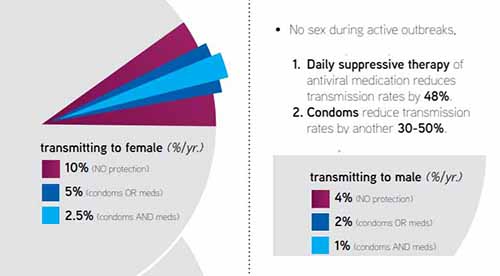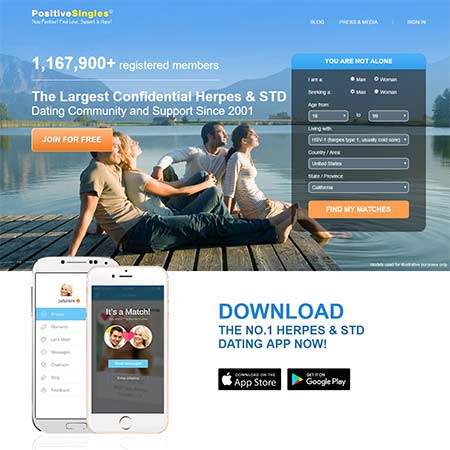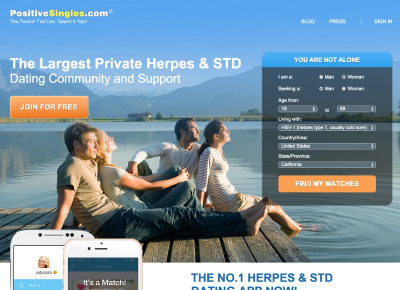Herpes does not mean your sex life is over, it just means it might be more complicated than it was before being diagnosed. You can still have a uninfected sex partner. So it is important to for you and your partner to know how high your risk of transmission is.
By doing this, you can explain to future partners what the risk is and help them accept the risk. This is important for both casual relationships and long-term monogamous relationships.

It is impossible to lower your risk of transmission to zero. By taking precautions such as abstaining during an outbreak, using condoms, and taking antiviral medications such as Valtrex or Acyclovir, you can greatly reduce your risk of transmission. There are many couples where one partner is infected that have a healthy sex life without the other partner getting infected.
In this article, herpes transmission rates will be broken down, including female-to-male and male-to-female transmission rates. This information can help lower the chances of spreading herpes.
How is herpes transmitted?
Before you can know how to not transmit herpes, you should know how it is spread. It is spread by direct skin-to-skin contact. Oral herpes is usually spread by kissing and genital herpes is usually spread by vaginal and anal sex.
Herpes can be transmitted by touching an infected person’s skin, such as:
● Kissing someone with an active cold sore
● Oral, vaginal, and anal sex
● Touching any area of skin infected by herpes
Both oral and genital herpes are only transmitted via skin-to-skin contact. It can not be spread by bodily fluids, blood, surfaces, towels, bedding, toilets, or any other way. For example, coming into contact with herpes on your arm won’t infect you unless you have an open wound that would allow the virus to enter the body.
Herpes transmission rates during an outbreak
You are most likely to spread genital herpes during an outbreak, when herpes is most contagious. This includes prodrome until the last sore is healed. Sex should be entirely avoided during this time.
Herpes Can Be Spread Even If You Aren’t Having An Outbreak
Once you have oral or genital herpes, you can spread the virus at anytime, even without symptoms. This is called asymptomatic shedding.
About 70% of new infections are due to asymptomatic shedding. The person with herpes won’t realize they are shedding, since they don’t have any symptoms.
Herpes can be spread at any time, with or without symptoms.
These are the percentages of the time herpes will asymptomatically shed:
HSV-2 Genital: 15-30%
HSV-1 Genital: 3-5%
HSV-1 Oral: 9-18%
HSV-2 Oral: 1%
The first year of having herpes, it will shed more frequently. This is because the body doesn’t have enough antibodies against the virus yet. Genital herpes without symptoms will spread the virus about half as frequently as genital herpes with symptoms.
The percentage of time one sheds will decrease over time. Using suppressive antiviral medications can reduce both asymptomatic shedding and outbreaks. It can also reduce the risk of transmitting herpes to a partner.
Herpes transmission rates broken down
A study of genital herpes in couples showed the annual risk of transmission averaged around 5% to 10% per year for those who abstained from sex during an outbreak. This depends on gender. The risk of contracting herpes was much higher for women, but it was lower for those who already had oral herpes.
These percentages are simply averages. This study focused on couples who have been together for some time. Couples that just got together may have different results. More research is still needed in this area.
The study assumes the following:
• No sex during active outbreaks,
• No daily antiviral medication,
• No regular use of condoms,

Unprotected sex, herpes-male to non-herpes female:
10%
Unprotected sex, herpes-female to non-herpes male:
4%
Worry about possible transmission? Find a partner with herpes!

PositiveSingles is 2023 No.1 Herpes dating site and have been on the web for over 20 years. It has 1.7 million online people with herpes.
You can find thousands of nearby singles wiht herpes like you no matter you are looking for a casual relationship or long-term parters. Spend 3 minutes to place a profile and chat now.
Chances of spreading herpes on antiviral medication and outbreak abstinence
Valtrex, a drug prescribed to prevent genital herpes outbreaks, may prevent the spreading of the virus.
Once-daily Valtrex was found to lower the chance of a partner getting herpes from someone with no symptoms by about fifty-percent.
For partners with symptoms, the risk was lowered by 77%.
"This is the first time that a drug has been shown effective against the transmission of virally transmitted infections," lead researcher Larry Corey, MD, tells WebMD.
● Herpes-female to uninfected male: 2%
● Herpes-male to uninfected female: 5 %
Chances of passing herpes without condom
Condoms also lowered the transmission rates. They don’t cover all of the possibly infected skin so they don’t take away all risk, but they cut the rate down to thirty to fifty-percent.
Herpes-Female To An Uninfected Male
● 4% (Condom only)
● 2% (Medication only)
● 1% (Condoms and medication)
Herpes-Male To An Uninfected Female
● 10% (No protection)
● 5% (Condoms or medication)
● 2.5% (Condoms and medication)
Is Male-To-Female Or Female-To-Male Riskier?
Females are more likely to contract herpes than males, because the vagina is composed of mucous membranes. Male genital does have mucous membranes in the head of the penis, the foreskin, and the urethra, but there is less exposed skin that consists of mucous membranes.
Herpes is more dependent on the location of the body that is in contact with the virus, rather than the gender. Exposure to mucous membranes is what contracts herpes.
You are at greatest risk of transmission when there is any contact in an infected area with mucosa, such as the nostrils, mouth, lips, eyelids, ears, anus, penis head, vagina, foreskin, urethra, or clitoris.
Women are at greater risk due to their anatomy and because men tend to have more frequent outbreaks.
Worry about possible transmission? Find a partner with herpes!

PositiveSingles is 2023 No.1 Herpes dating site and have been on the web for over 20 years. It has 1.7 million online people with herpes.
You can find thousands of nearby singles wiht herpes like you no matter you are looking for a casual relationship or long-term parters. Spend 3 minutes to place a profile and chat now.
Can hsv2 be spread by kissing?
HSV2 is one of the two strains of herpes, and it is rarely transmitted via mouth. It is still possible, especially for those with compromised immune systems.
Can you spread herpes by sharing food and drink?
Oral herpes can be spread by saliva, so by contact with razors, eating utensils, towels, and other items used by someone infected with herpes.
If you share food or drink with someone with an active cold sore, you could contract oral herpes. HSV1 can also be contracted from vaginal fluid, semen, and blister fluid. You can get oral herpes from doing oral sex on someone with genital herpes.
How can I avoid spreading oral herpes?
There is no guarantee that your partner won’t catch oral herpes, but by taking the steps above you can significantly lower the risk.
For more guidance on sex life after herpes, see the articles:
Who give you herpes? There is pretty much no way to know
Worry of possible herpes transmission, how to get over it
Herpes: how is it spread & how do you get it?
What is my risk of spreading herpes? Herpes transmission rates breakdown
How do I stop my partner from catching herpes?






